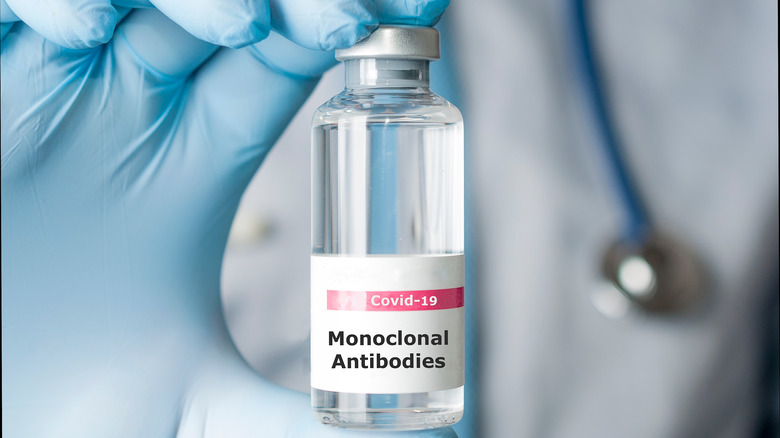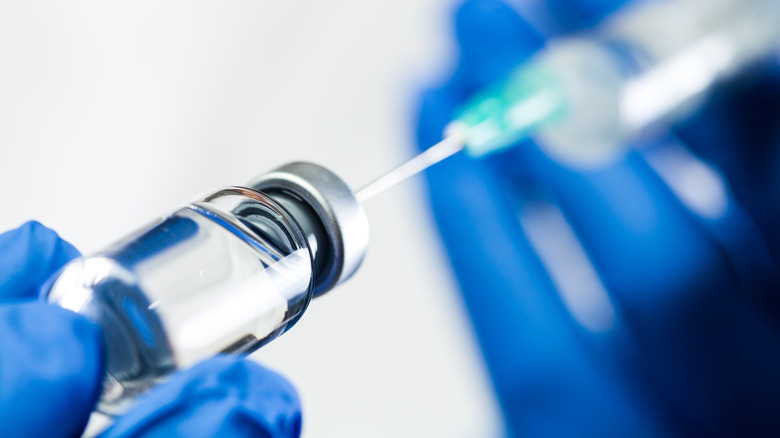Do COVID-19 Antibody Treatments Work?
Antibody treatments for Covid-19 aren't exactly "new." Last summer, scientists first formulated an antibody concoction that they thought could be used to treat, and maybe even prevent, COVID-19 (via AJMC Center for Biosimilars). On September 29 2020, Regeneron revealed that its monoclonal antibody treatment was effective in reducing viral load and hospital stays, and shortening recovery times. The very next week, then-President Trump was treated with the monoclonal antibodies, and recovered relatively quickly. In the months to follow, several antibody treatments received Emergency Use Authorization from the FDA.
There are two main types of COVID-19 antibody treatments. Plasma treatments use donated blood plasma from individuals who have recovered from COVID-19 and have antibodies to the disease — but there has been some debate within the medical community about the effectiveness of this treatment method, especially past the first couple days of infection (per AJMC Center for Biosimilars). Monoclonal antibody treatments, on the other hand, use lab-created proteins which block the virus from entering cells and "identify" the virus for the immune system to attack and clear from the body (via UC Health). They are administered either by IV infusion or by injection, and have a longer timeframe in which they can be used — up to within 10 days of the onset of COVID symptoms (via NBC News).
COVID antibody treatments are highly effective
Monoclonal treatments are intended to attack the virus while it is still in the nose and throat, before it has a chance to spread to other parts of the body (via NBC News). Dr. Myron Cohen, a leading coronavirus antibody researcher at the University of North Carolina at Chapel Hill, explains: "It's a race between your ability to make an antibody to protect your lungs and the rest of your body and the virus."
But do Covid-19 antibody treatments actually work? For most people, yes (via CNN). They have been shown to be highly effective, if used early enough after infection. Studies show the treatments shorten the duration of the sickness, and reduce the risk of severe illness, hospitalization, and death by between 70 and 85%. And Dr. Steve Threlkeld, Baptist Memorial Hospital Infectious Disease Medical Director, told MSN, "These antibody treatments are really attractive because they do two things. They very specifically attack the spiked protein region of coronavirus and they do it early on. ... We've had as little as 3% of those who've gotten that antibody then go on to be admitted to the hospital."


